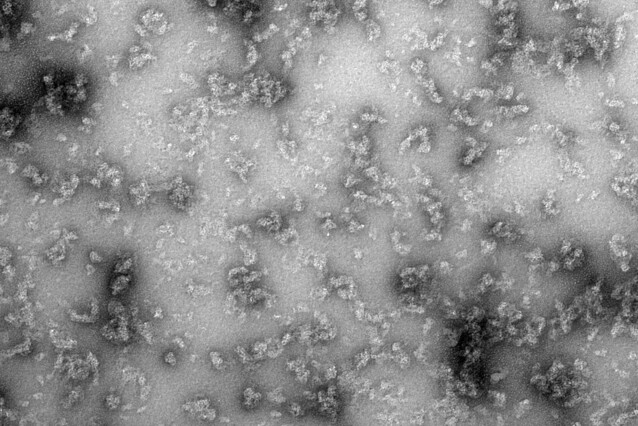New ventures into the cell’s membraneless compartments
A group of researchers at the Vienna BioCenter including IMP senior scientist Tim Clausen secured a grant from the Austrian Science Fund to explore the field of liquid-liquid phase separation in biology. The grantees plan to hire eight PhD students who will lead interdisciplinary research projects in the next four years.
Cells are incredibly complex machines driven by the innumerable molecules they contain. DNA, RNAs, proteins, lipids, sugars: all perform various functions that require specific environmental conditions and may therefore need to be separated in time or space.
The cells of Eukaryotes (fungi, protozoa, plants, and animals) achieve this feat mostly by sequestrating processes in various membrane-bound organelles that float around in the cell and offer just the right environment for specific tasks to be carried out. Alternatively, free-floating molecules can spontaneously bundle into non-miscible phases, comparably to oil droplets in water, and form membrane-free reaction chambers. This phenomenon is called liquid-liquid phase separation (LLPS) and may be involved in a wide array of vital cellular processes.
While Eukaryotes – all larger organisms including animals and plants - may use both membrane-bound organelles and LLPS, Prokaryotes (bacteria and archaea) lack membrane-bound compartments altogether. How do bacteria separate cellular processes with different environmental needs?
Scant research suggests they might use LLPS to produce compartments made of protein condensates. The molecular basis and biological relevance of such clustering remain unclear. This will be the focus of Tim Clausen’s research within the frame of a new ‘doc.fund’ grant from the Austrian Science Fund, recently obtained by a consortium of researchers at the Vienna BioCenter. The grant amounts to 1.6 million Euros and will fund eight PhD positions through the Vienna BioCenter PhD Program.
“We want to investigate whether certain protein clusters in bacteria constitute membraneless compartments through multivalent yet defined interactions. This could be particularly useful for bacteria to separate protein synthesis from protein degradation – two opposing processes that happen simultaneously within the small volume of the bacterial cell pole,” explains Clausen.
In Bacillus subtilis, a common bacterium of the gut microbiome, stressful environmental conditions induce the formation of a molecular cluster, containing key components of the protein degradation machinery. One of the PhD projects will tackle the functional role and the structural organisation of this cluster in vitro and in vivo, applying a bottom-up reconstitution approach. The other PhD projects, focusing on LLPS phenomena in Eukaryotes, will be pursued at the Max Perutz Labs, the Institute of Molecular Biotechnology of the Austrian Academy of Sciences (IMBA), and the University of Vienna.
“It has become clear that the study of liquid-liquid phase separation requires a combination of approaches, ranging from soft-matter physics, computer simulations, structural biology, biochemistry, and cell biology,” says Bojan Zagrovic, group leader at Max Perutz Labs and coordinator of the grant consortium.
The PhD students and their group leaders will attend a special course that touches upon all these aspects in the investigation of liquid-liquid phase separation.
The participating group leaders expect to start recruiting students in autumn 2021.
Useful links
The Vienna BioCenter PhD Program
Other participating group leaders
• Bojan Zagrovic (coordinator), Max Perutz Labs
• Kristina Djinovic-Carugo, Max Perutz Labs
• Robert Konrat, Max Perutz Labs
• Ivan Yudushkin, Max Perutz Labs
• Elif Karagöz, Max Perutz Labs
• Shambaditya Saha, IMBA
• Sofia Kantorovich, Faculty of Physics & University of Vienna
